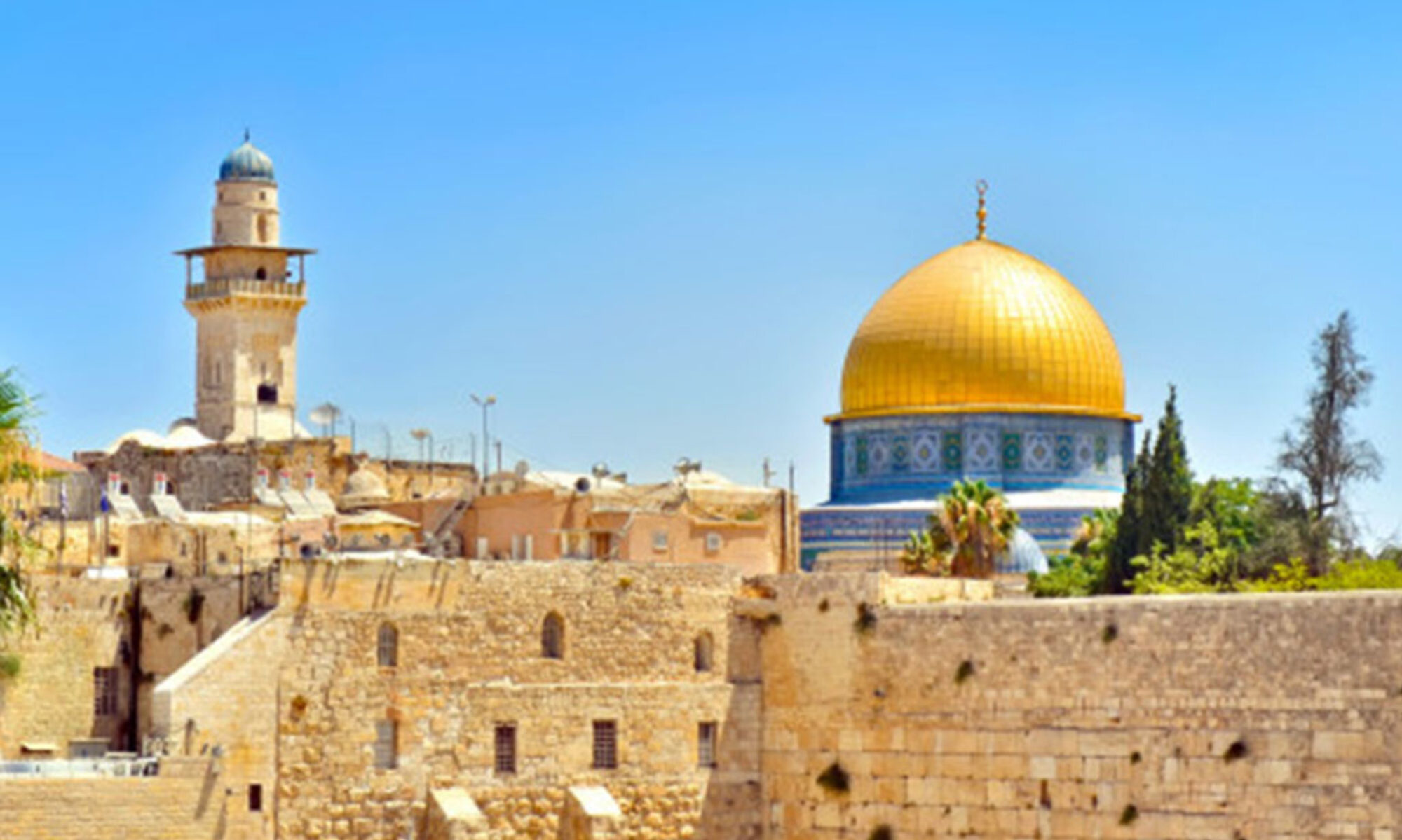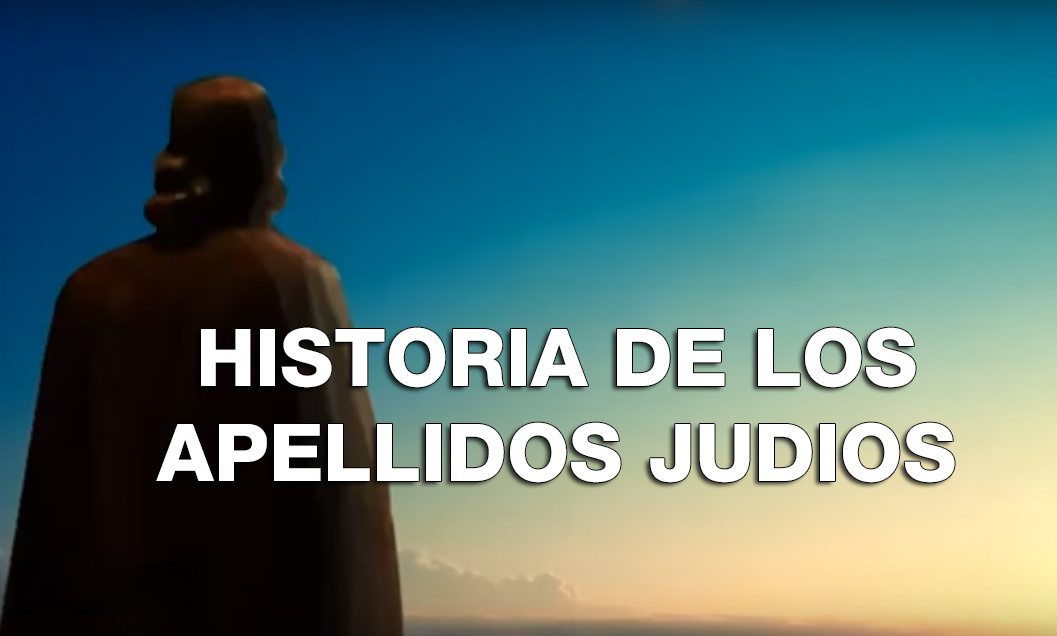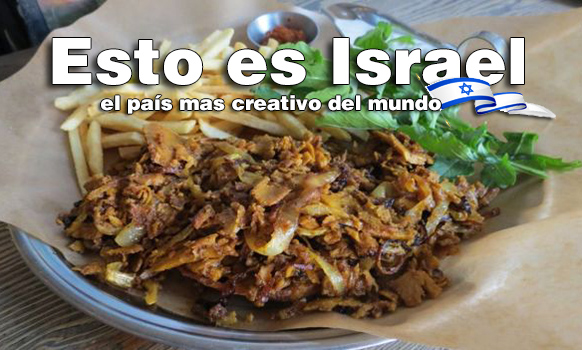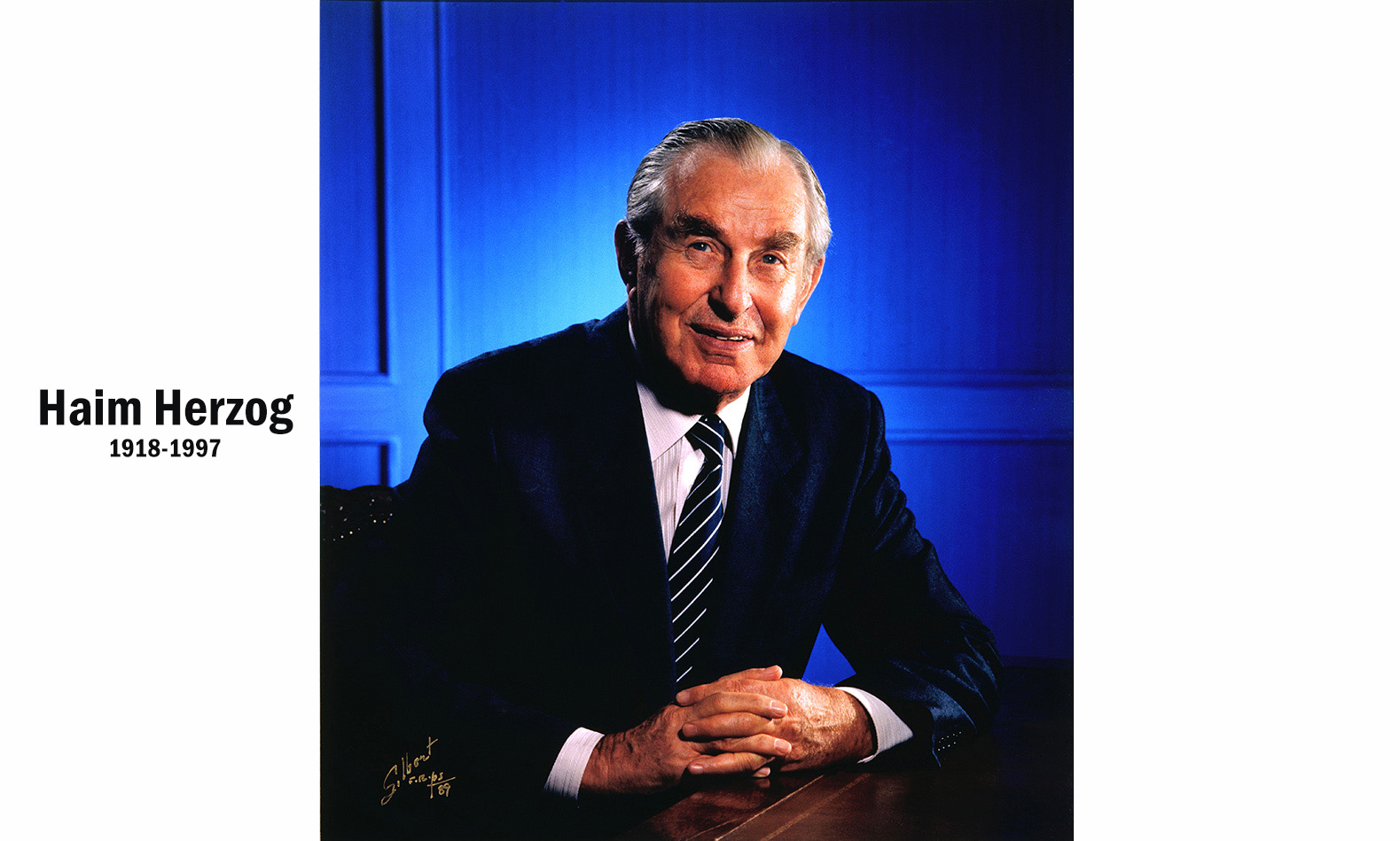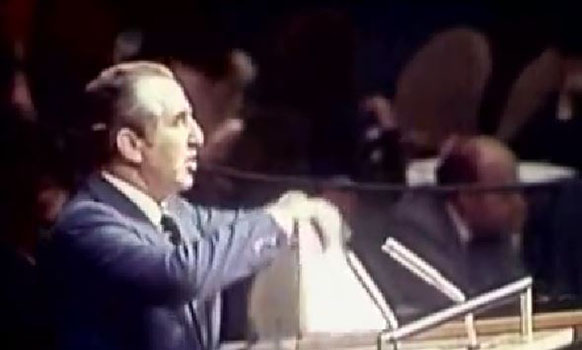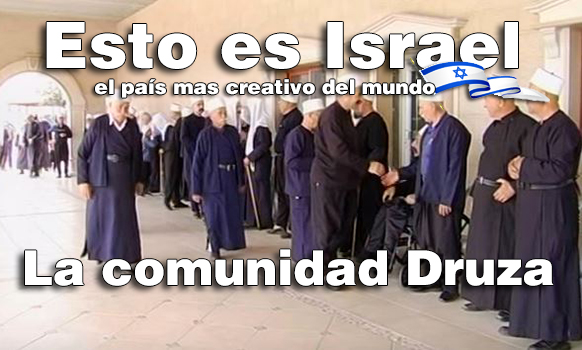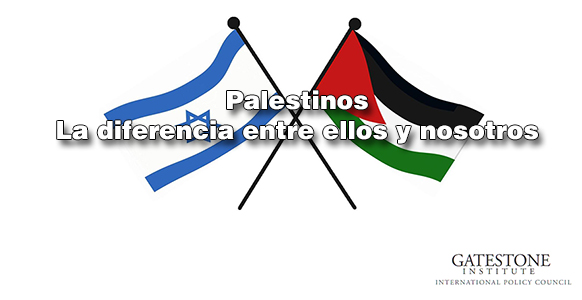Ejercito Israelí recluta a su primera oficial ciega
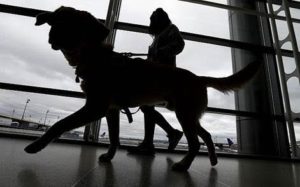
Hila Meudah, quien perdió su visión cuando era niña y estaba exenta del servicio militar, fue designada como asesora legal en la Fuerza Aérea.
El ejército israelí ha recibido a su primer oficial ciego.
Hila Meudah, de 24 años, fue enviada recientemente a la Procuraduría General del Ejército como una asesora legal para la Fuerza Aérea de Israel, informó el diario Makor Rishon.
Las Fuerzas de Defensa de Israel pagaron sus estudios en la Universidad Bar Ilan para ser abogada después de que ella aceptara servir por varios años como oficial después de su graduación.
Meudah, quien perdió su visión cuando era niña, estaba exenta del servicio militar, pero insistió en servir de todos modos, dijo ella. La garantía de empleo con el ejército le atrajo, dijo ella. “porque encontrar trabajo como abogada no es simple, pero hubiera insistido en servir independientemente de eso”. Su perro de ayuda, Niels, es el único animal que está permitido en el Campo Rabin en Tel Aviv.
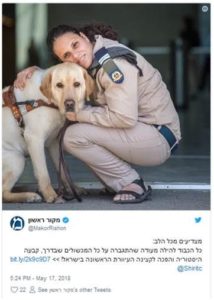
Siendo la mayor de tres hermanas, Meudah y sus hermanas le dijeron a Makor Rishon el jueves que su madre, Esther, dedicó su vida a ayudarla a superar su discapacidad. Ella también se negó a que su hija discapacitada asistiera a los marcos de educación especial, insistiendo en que estudiara en un escuela y aula regular.
“Mamá trascribió y actualizó libros enteros de matemáticas en Braille para que Hila pudiera estudiar como todos los demás”, dijo al periódico la hermana del medio de Meudah, Liron.
“Ella construyó su vida alrededor de hacer que Hila sintiera que ella puede hacer cualquier cosa que decida en su mente, sin importar lo que le dijeran”.
Otros 21 soldados con discapacidad visual están sirviendo actualmente en las Fuerzas de Defensa de Israel, pero ninguno como oficial.
Junio 21 del 2018, The Times of Israel, por: JTA
(Traducción por la Comunidad Judía de Guayaquil)
Israeli veganism takes root in land of milk and honey (en)
25 January 2016
From the sectionMiddle East
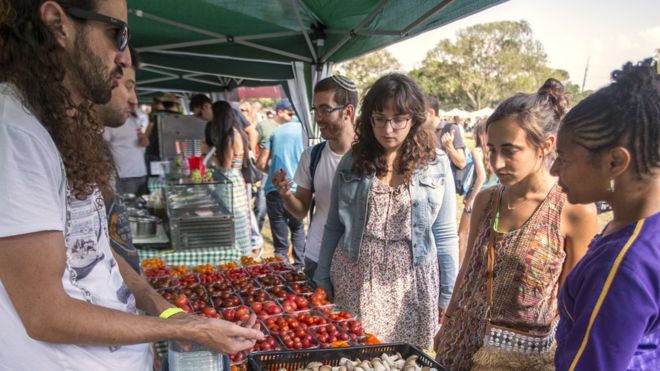 Image copyrightAFP Israel has the highest number of vegans per capita in the world, activists say
Image copyrightAFP Israel has the highest number of vegans per capita in the world, activists sayOn a typical evening at Nanuchka, a popular Georgian restaurant in the middle of Israel’s bustling Tel Aviv, music fills the air and alcohol flows freely.
Until a few years ago, Nanuchka was just a conventional Georgian pub serving traditional food like khachapuri, a cheesy bread, and khinkali, a meat-stuffed dumpling.
But then Nana Shrier, the flamboyant owner of the venue, where the walls are adorned with erotic art, became a strict vegan – in what is said to be the most vegan country in the world per capita.
She decided to convert her entire restaurant to a meatless and dairy-free establishment despite being advised against it by friends and business colleagues.
Israelis are flocking to it – and business is more successful than ever.
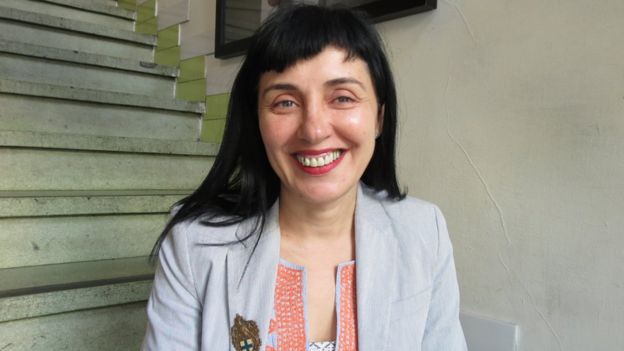 Image copyrightErica Chernofsky Image captionNana Shrier has seen business grow since converting her restaurant to vegan cuisine
Image copyrightErica Chernofsky Image captionNana Shrier has seen business grow since converting her restaurant to vegan cuisineFor vegans, everything derived from animals is off-limits. Similar to – but stricter than – vegetarians, vegans do not eat eggs and cheese, or drink milk, and in some cases even avoid honey. Leather, wool and silk are also avoided.
Sitting at Nanuchka, eating a meal of vegan tsatsivi (where cauliflower is substituted for chicken), Nana says that consuming animals is both inhumane and unhealthy.
«I don’t like it,» she explains, scrunching her nose in disgust. «I feel the body of the animals in the steak, I feel the animal in the fillet, and the blood. I don’t like it so much.»
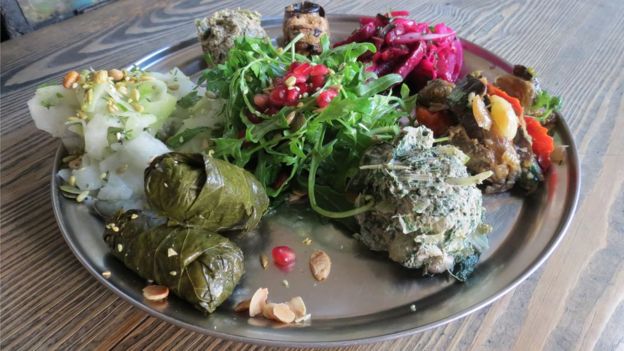 Image copyrightErica Chernofsky Image captionA plate of vegan appetisers on the menu at Nana Shrier’s restaurant
Image copyrightErica Chernofsky Image captionA plate of vegan appetisers on the menu at Nana Shrier’s restaurant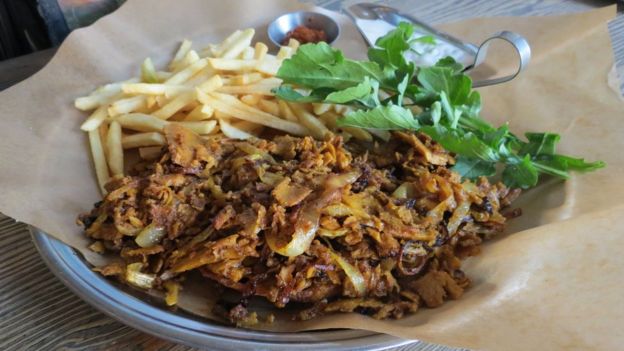 Image copyrightErica Chernofsky Image captionThe restaurant also serves a vegan version of the meat dish shawarma
Image copyrightErica Chernofsky Image captionThe restaurant also serves a vegan version of the meat dish shawarmaNana argues there is another benefit to veganism as well.
She says that sometimes, after eating a large steak, or a cheeseburger, for example, people can feel tired and lethargic.
«When you eat vegan food, you have a lot of energy to do very good and nice things,» she says with a coy smile.
When asked if she is implying that vegans have a better sex life than their meat-eating counterparts, she laughs heartily and says, «of course!»
Vegan soldiers
Veganism has become so prominent in Israel that the Israel Defense Forces (IDF) has started catering to followers in its ranks by offering vegan-friendly ration packs, non-leather boots and wool-less berets.
From an army base in southern Israel, Cpl Daniella Yoeli says the food is not exactly worth writing home about but she is happy to have the option of eating couscous and lentils over schnitzel and schwarma.
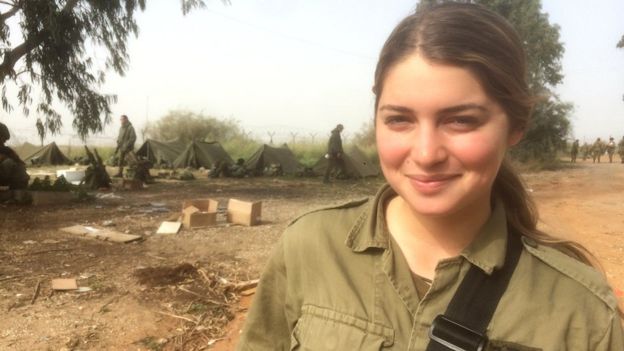 Image copyrightErica Chernofksy Image captionThe IDF meets the needs of vegan soldiers like Cpl Daniella Yoeli
Image copyrightErica Chernofksy Image captionThe IDF meets the needs of vegan soldiers like Cpl Daniella YoeliShe has always loved animals, she explains, and became a vegetarian as a child, converting to veganism only recently.
Her diet is so important to her that had the army not been able to provide conditions that had harmed no living creatures, she might not have enlisted in a combat unit where she would not have been able to provide her own food.
While a vegan combat soldier might seem contradictory, Yoeli politely disagrees.
«In Israel, in the army, what we do in our service is defend the citizens, so I don’t think it’s a paradox, » she says, M-16 rifle slung over her shoulder.
«Like I want to defend animals, I want to defend people, so this is why I’m in combat and this is why I’m in the army.»
‘Species revolution’
According to Omri Paz, the head of the Israeli organisation Vegan Friendly, 5% of Israelis are vegan and the number is growing. Israel boasts some 400 vegan-friendly restaurants, including the world’s first vegan Domino’s Pizza.
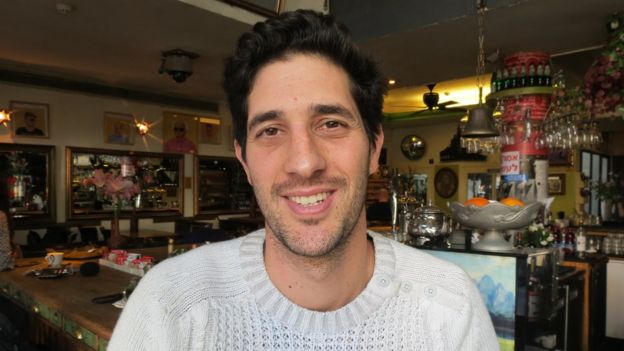 Image copyrightErica Chernofsky Image captionOmri Paz: It’s time to think about civil rights for animals
Image copyrightErica Chernofsky Image captionOmri Paz: It’s time to think about civil rights for animalsMr Paz attributes the rise of veganism here to a YouTube video by US animal rights activist Gary Yourofsky, which garnered millions of hits worldwide, and more than a million in Israel alone, a lot for a country of only some eight million people.
Mr Yourofsky lectures about the cruelty of the meat industry and, controversially, compares the treatment of animals to the Nazi Holocaust.
Omri Paz says he watched the video and did not leave his room for a week. He says this is the civil rights issue of our century.
«Just like 300 years ago, blacks weren’t equal to whites and that changed with time, and then 100 years ago with the women’s revolution, so I think now, the 21st Century, is the animal species revolution,» he says.
«Treating them not as humans, but not as slaves.»
Haim Herzog (1918-1997) – חיים הרצוג
Se graduó en Derecho en la Escuela Universitaria de Londres y posteriormente trabajó de abogado en el Lincoln’s Inn. Se unió al ejército británico durante la Segunda Guerra Mundial, infiltrado principalmente en Alemania. Para el final de la guerra, se había convertido ya en jefe de la inteligencia en el norte de Alemania para los británicos, y participado en la liberación de varios campos de concentración.
Inmediatamente después de la guerra, volvió a Palestina para participar en la creación del estado judío. Después del plan de la ONU para la partición de Palestina de 1947 luchó en la Guerra árabe-israelí de 1948, sirviendo como oficial en las batallas de Latrún.
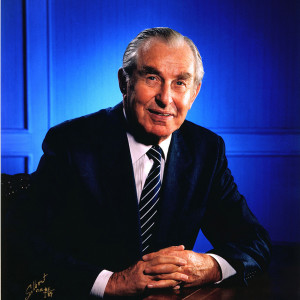 En 1975, fue embajador de Israel en la Organización de las Naciones Unidas (ONU).
En 1975, fue embajador de Israel en la Organización de las Naciones Unidas (ONU).
En 1983 fue elegido sexto Presidente de Israel por la Knéset, venciendo al candidato conservador Menajem Elon. Sirvió en el cargo por dos veces consecutivas (el máximo permitido bajo las leyes de Israel de aquel entonces), retirándose de la vida política en 1993.
Sepultura de Herzog en el Monte Herzl.
Herzog también fue autor de varios libros sobre los acontecimientos históricos en los que participó:
- War of Atonement: The Inside Story of the Yom Kippur War (1975) (hay traducción en español: La guerra del Yom Kippur, RBA, 2007)
- Who Stands Accused? : Israel Answers Its Critics (1978)
- The Arab-Israeli Wars: War and Peace in the Middle East (1982)
- Heroes of Israel: Profiles of Jewish Courage (1989).
- Battles of the Bible (1978), co-autor con el historiador militar Mordejai Guijón.
- Living History: A Memoir (1996).
Herzog era cuñado de Abba Eban; las esposas de ambos hombres eran hermanas.
Herzog falleció el 17 de abril de 1997, y descansa en el cementerio Monte Herzl, Jerusalén.
Tuvo tres hijos, uno de los cuales, Isaac Herzog, es miembro del Knéset desde 2006.
Wikipedia
El discurso más valiente, actual y contundente contra el racismo antisemita de la ONU-10-11-1975
Hace 40 años, en 1975 (10 de noviembre, 1975), la Asamblea General de las Naciones Unidas aprobada la Resolución 3379 que comparaba al movimiento de liberación nacional judío, el SIONISMO, como Racismo. Aunque la Resolución 3379 fue derogada en 1991 cumplió el objetivo de sus promotores de proscribir internacionalmente a Israel. Hoy, muchos pretenden simular su antisemitismo denominándose «Antisionistas». Cuando un sólo pueblo sobre la faz de la tierra no puede expresar su nacionalismo (el judío) y cuando se odia a casi todo un pueblo que se declara sionista uno es lo que es… Jaim Herzog, entonces embajador israelí ante las Naciones Unidas, condenó enérgicamente la Resolución 3379 de la Asamblea General con un discurso que es… lastimosamente actual.
Comunidad Druza en Israel | העדה הדרוזית בישראל
Este video lo lleva a un viaje a las raíces de las creencias monoteístas y retrata aspectos del monoteísmo en Tierra Santa en el siglo XXI.
Todas las creencias ven a Israel como Tierra Santa y tienen rituales especiales y lugares sagrados que son sagrados solo para ellos. Al mismo tiempo, lo que podría constituir un ritual para una religión específica podría no ser considerado sagrado por otro.
¿Podemos mirar más allá de estas diferencias culturales y reconocer que todos somos seres humanos viviendo simbióticamente en la tierra de Israel? Más de veinte líderes religiosos comparten su punto de vista y nos ofrecen una visión de su mundo, rituales y forma de vida.
Ministerio de Relaciones Exteriores, Israel
Palestinians: The Difference between Us and Them
I cannot count the number of times that I heard from Israeli Jews the phrases «I’m ashamed» and «I’m sorry» in response to the horrific crime that claimed the life of Palestinian toddler Ali Dawabsha in the West Bank village of Duma last week.
The strong response of the Israeli public and leaders to the arson attack is, truthfully, somewhat comforting. The wall-to-wall Israeli condemnation of this crime has left me and other Palestinians not only ashamed, but also embarrassed — because this is not how we Palestinians have been reacting to terror attacks against Jews — even the despicable murder of Jewish children.
Our response has, in fact, brought feelings of disgrace and dishonor. While the Israeli prime minister, president and other officials were quick strongly to condemn the murder of Dawabsha, our leaders rarely denounce terror attacks against Jews. And when a Palestinian leader such as Mahmoud Abbas does issue a condemnation, it is often vague and equivocal.
Take, for example, what happened after last year’s kidnapping and murder of three Israeli teenagers by Palestinians in the West Bank. It not only took President Abbas four days to issue a statement condemning the terror attack, but even then, the condemnation was at best a tentative: «The Palestinian presidency… condemns the series of events that happened last week, beginning with the kidnapping of three Israeli youths.» Abbas then went on to denounce Israel for arresting dozens of Hamas members after the abduction and murder of the three youths.
Later in 2014, when Abbas did condemn a Palestinian terror attack that killed five Israelis in a Jerusalem synagogue, Fatah official Najat Abu Baker, a few days later, explained that Abbas’s condemnation was made «within a diplomatic context… [he] is forced to speak this way to the world.»
Abbas’s condemnation of the attack at the synagogue in Jerusalem’s Har Nof neighborhood apparently came only under pressure from U.S. Secretary of State John Kerry, who telephoned the Palestinian leader twice to demand that he speak out against the killings. Abbas’s statement said that the Palestinian leadership condemns the «killing of worshippers in a synagogue and all acts of violence, regardless of their source.» His statement then also called for an end to «incursions and provocations by settlers against the Aqsa Mosque.»
Abbas’s ambiguous, half-hearted condemnations of attacks by Palestinians against Israelis are only intended for public consumption and are primarily aimed at appeasing Western donors, so that they will continue channeling funds to the Palestinian Authority (PA). In addition, his condemnations almost always seek to blame Israel for the Palestinian terror attacks — presumably an attempt to justify the killing of Jews at the hands of Palestinian terrorists.
In contrast, Israeli leaders who condemned the murder of the Palestinian toddler sound firm and unambiguous. Here is what Prime Minister Netanyahu said after visiting the murdered baby’s parents and brother, who were wounded in the arson attack and are receiving medical treatment in Israeli hospitals: «When you stand next to the bed of this small child, and his infant brother has been so brutally murdered, we are shocked, we are outraged. We condemn this. There is zero tolerance for terrorism wherever it comes from, whatever side of the fence it comes from.»
Netanyahu’s strong and clear condemnation left me and other Palestinians wondering when was the last time we heard similar statements from our leaders. I cannot remember ever hearing Abbas or any other Palestinian leader express shock and outrage over the killing of a Jew in a Palestinian terror attack. Nor can I remember the last time we heard of a Palestinian official visiting the Israeli victims of a Palestinian terror attack.
The Israeli leaders’ condemnation of the baby’s murder is a sincere voice that reflects the views of the overwhelming majority of the Israeli public. In contrast, the Palestinian leaders’ denunciations of terror attacks do not reflect the general feeling on the Palestinian street. Each time Abbas reluctantly condemns a Palestinian terror attack, he faces a wave of criticism from many Palestinians.
Unlike the Israeli public, many Palestinians often rush to justify, and even welcome, terror attacks against Jews. This was the situation just a few weeks ago, when an Israeli man was shot dead near Ramallah. Several Palestinian factions and military groups applauded the murder,calling it a «natural response to Israeli crimes.»
This is the huge difference between the way Israelis and Palestinians react to terrorism. The murder of Dawabsha saw thousands of Israelis hold anti-violence rallies to condemn the horrible crime. But has anyone ever heard of a similar rally on the Palestinian side whenever terrorists kill innocent Jewish civilians? Is there one top Palestinian official or prominent figure who dares to speak out in public against the murder of Jews, at a rally in the center of Ramallah or Gaza City? Has there ever been a Palestinian activist who dared to hold a rally in a Palestinian city to condemn suicide bombings or the murder of an entire Jewish family?
While Israelis have been holding rallies to condemn terror attacks against our people, we have been celebrating the killing of Jews. How many times have we taken to the streets to hand out sweets and candies in jubilation over the killing of Jews? Such sickening scenes of men and women celebrating terror attacks against Jews on the streets of the West Bank and Gaza Strip have never been condemned by our leaders. These scenes have become commonplace each time Palestinian terrorists carry out an attack against Jews.
These scenes stand in sharp contrast to the public statements and rallies in Israel in response to terror attacks against Palestinians. Our leaders need to learn from Israel’s President, Reuven Rivlin, who said he was «ashamed» and «in pain» for the murder of the Palestinian toddler. When was the last time a Palestinian leader used such rhetoric to condemn the murder of Jews? The laconic statements issued by Abbas’s office in response to anti-Jewish terror attacks never talked about shame or pain.
 Israeli President Reuven Rivlin visits 4-year-old Ahmed Dawabsha in hospital on July 31. Dawabsha was badly burned in an arson attack on his house in the village of Duma, which killed his baby brother and also injured his parents. (Image source: Mark Neyman/Israel Government Press Office) |
We have failed to educate our people on the principles of tolerance and peace. Instead, we continue to condone and applaud terrorism, especially when it is directed against Jews. We want the whole world to condemn terrorism only when it claims the lives of Palestinians. We have reached a point where many of us are either afraid to speak out against terrorism or simply accept it when it claims the lives of Jews.
The Israeli president has good reason to be ashamed for the murder of the baby. But when will we Palestinians ever have a sense of shame over the way we are reacting to the murder of Jews? When will we stop glorifying terrorists, and naming streets and public squares after them, instead of strongly denouncing them and expelling them from our society? We still have a lot to learn from Israeli leaders and the Israeli public.
www.gatestoneinstitute.org; View Original
Bassam Tawil is based in the Middle East.
